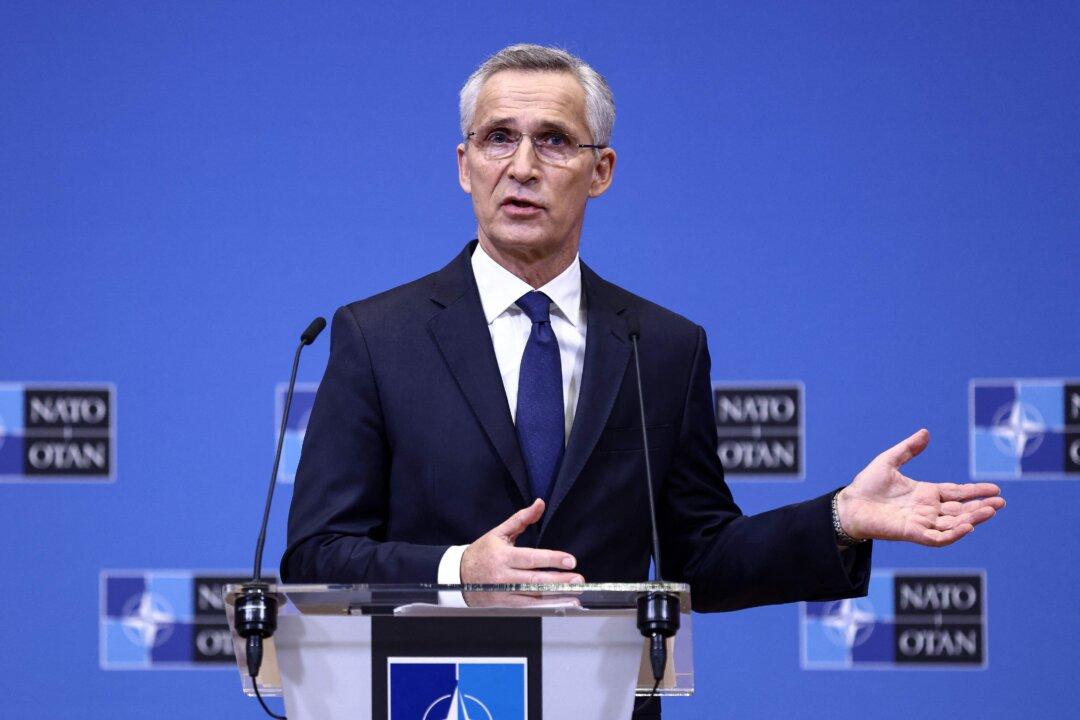The head of the North Atlantic Treaty Organization (NATO) said on Friday that it will continue to stand with Ukraine in the face of Russia’s aggression for “as long as it takes.”
Speaking to reporters in Brussels ahead of a meeting with foreign ministers in Bucharest next week, Secretary-General Jens Stoltenberg vowed NATO “will not back down” as he called on allied countries to provide more support through the alliance’s “Comprehensive Assistance Package,” which sends crucial equipment to the war-wracked country such as fuel, medical support, among other supplies.





